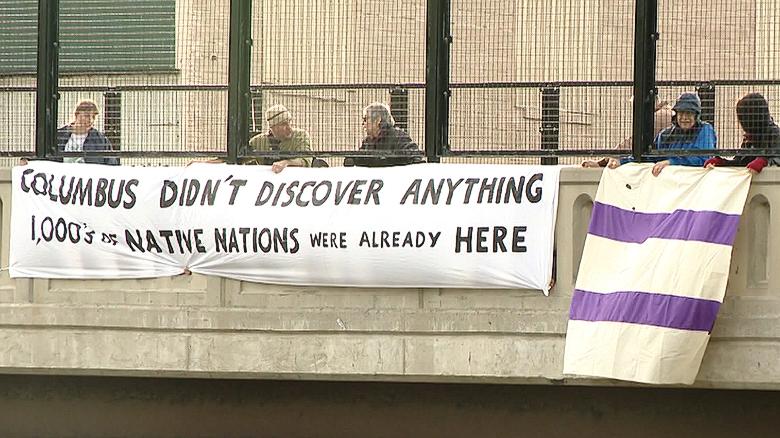Making a True Apology on Indigenous Peoples’ Day

In 2021, President Joe Biden made a formal proclamation to establish Indigenous Peoples’ Day. In his proclamation, President Biden acknowledges the contribution of Indigenous people. He acknowledges that American government actions have harmed this group of people. He pledges to do better.
That is the formula for a true apology, without ever using the words, “I am sorry” or “We are sorry.”
- Establish the context of the conversation.
- Acknowledge that you did harm (or someone else did harm in your name that you benefited from).
- Pledge to do better.
Establish context
Who are the parties? Indigenous peoples’ Tribal Nations and the Federal (United States) Government.
… On Indigenous Peoples’ Day, our Nation celebrates the invaluable contributions and resilience of Indigenous peoples, recognizes their inherent sovereignty, and commits to honoring the Federal Government’s trust and treaty obligations to Tribal Nations.
What was the harm done?
Our country was conceived on a promise of equality and opportunity for all people — a promise that, despite the extraordinary progress we have made through the years, we have never fully lived up to … For generations, Federal policies systematically sought to assimilate and displace Native people and eradicate Native cultures.
Commit to doing better by the injured party
We also recommit to supporting a new, brighter future of promise and equity for Tribal Nations — a future grounded in Tribal sovereignty and respect for the human rights of Indigenous people in the Americas and around the world.
In the first week of my Administration, I issued a memorandum reaffirming our Nation’s solemn trust and treaty obligations to American Indian and Alaska Native Tribal Nations and directed the heads of executive departments and agencies to engage in regular, meaningful, and robust consultation with Tribal officials. It is a priority of my Administration to make respect for Tribal sovereignty and self-governance the cornerstone of Federal Indian policy. History demonstrates that Native American people — and our Nation as a whole — are best served when Tribal governments are empowered to lead their communities and when Federal officials listen to and work together with Tribal leaders when formulating Federal policy that affects Tribal Nations.
Honor the injured party.
In this case, honor the recent labor and commitment of Indigenous peoples (while addressing their governments).
The contributions that Indigenous peoples have made throughout history — in public service, entrepreneurship, scholarship, the arts, and countless other fields — are integral to our Nation, our culture, and our society. Indigenous peoples have served, and continue to serve, in the United States Armed Forces with distinction and honor — at one of the highest rates of any group — defending our security every day. And Native Americans have been on the front lines of the COVID-19 pandemic, working essential jobs and carrying us through our gravest moments. Further, in recognition that the pandemic has harmed Indigenous peoples at an alarming and disproportionate rate, Native communities have led the way in connecting people with vaccination, boasting some of the highest rates of any racial or ethnic group.
Acknowledge that there was harm.
We must never forget the centuries-long campaign of violence, displacement, assimilation, and terror wrought upon Native communities and Tribal Nations throughout our country. Today, we acknowledge the significant sacrifices made by Native peoples to this country — and recognize their many ongoing contributions to our Nation.
Denying harm or willfully forgetting the legacy of harm leads to a non-apology apology. More on that below.
What’s a non-apology apology?
At best, a non-apology apology includes acknowledgement that you were harmed. It may also include a promise by the person making the apology to do better. But it fails to admit wrongdoing.
Everyone wants to think that they are in the right. Many people find it hard to admit they are wrong. If the best they can do is admit that you were harmed, and say that they won’t do that again, it can be enough.
At worst, a non-apology apology can pass blame, shame, or can gaslight about the situation where the apology was owed. More on this next week.